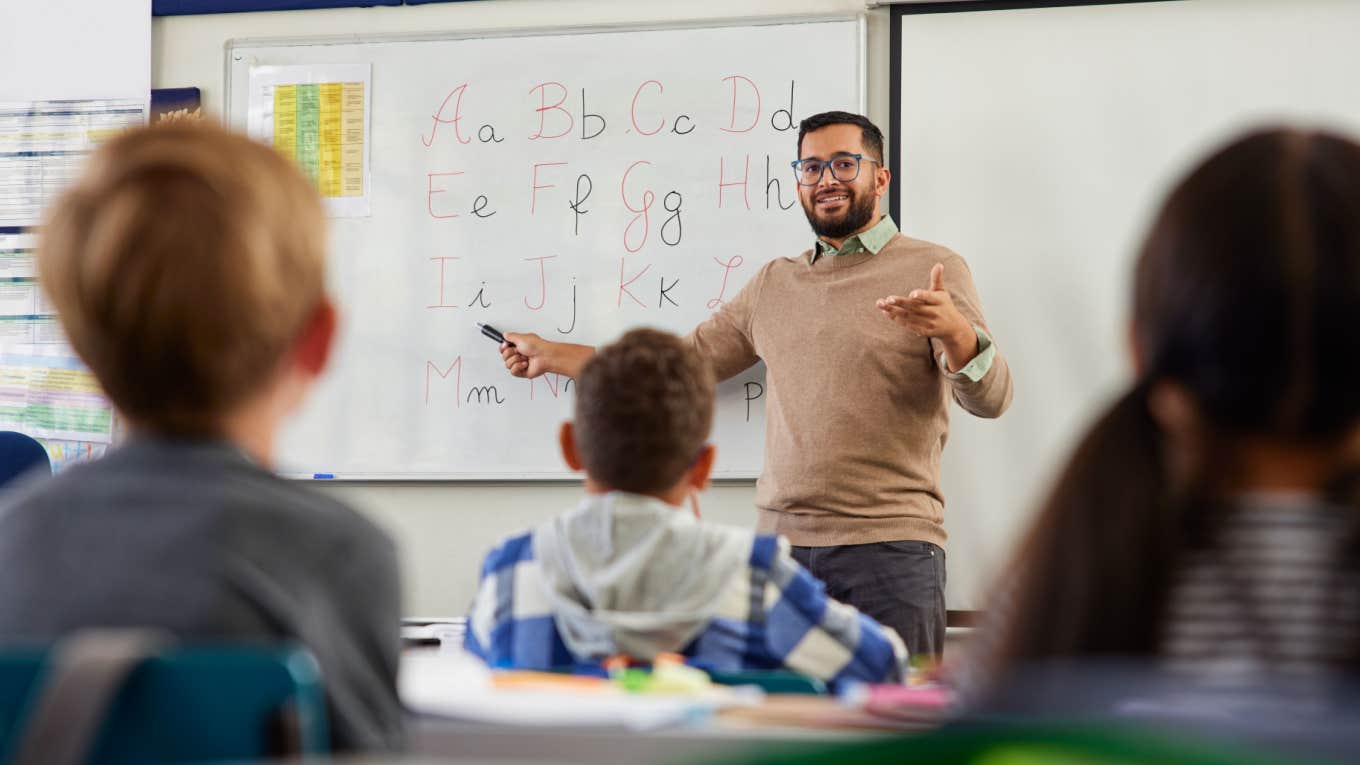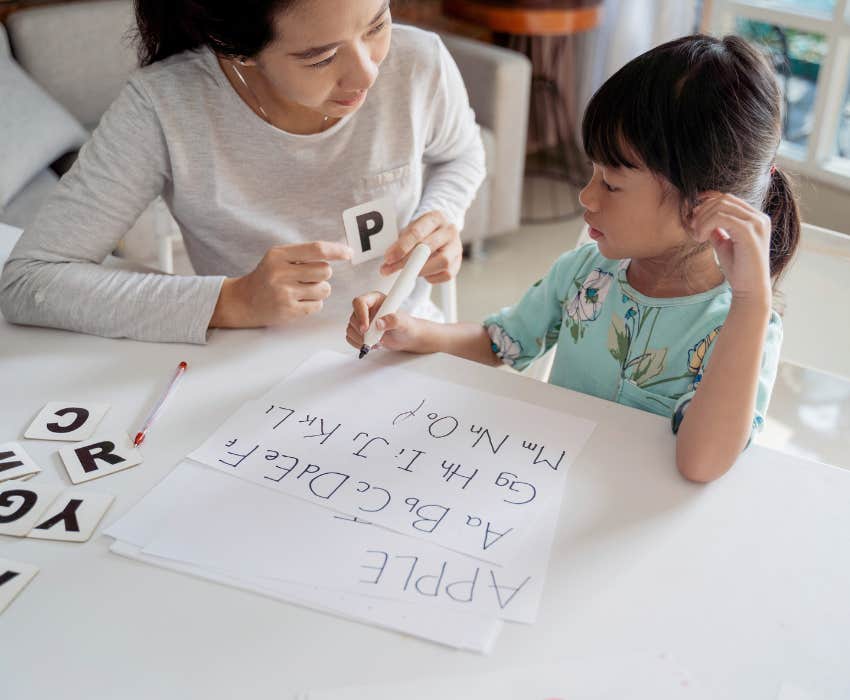Teacher Reveals That Kids Today Learn The Alphabet Song Completely Differently Than We Did
The modified version allows kids to learn each alphabet letter thoroughly.
 Rido | Shutterstock
Rido | Shutterstock Many of us are likely aware that the alphabet song we learned has stirred confusion over the years, with kids slurring the letters L, M, N, O, and P into one word.
A teacher recently revealed the updated version she and other teachers have begun teaching their students in an effort to clear up misconceptions and guarantee retention.
The teacher took to TikTok to share the new alphabet song kids are learning today.
Rachel is a first-grade teacher specializing in the science of reading (SOR) and social and emotional learning. She recently shared a screenshot of a post from X made by a mom who goes by @mostly_cheese. The post read, “My 5-year-old twins have informed me I sing the alphabet wrong. Tune is the same, but the new rendition their teacher prefers breaks down as follows: ABCDEFG / HIJKLMN / OPQ / RST / UVW / XYZ. R.I.P LMNOP.”
Rachel affirmed this is true, saying, “I don’t teach the alphabet the way I grew up singing it.” She explained that the notorious L-M-N-O-P is one of the reasons why the alphabet was revised.
“Kids hear L-M-N-O-P, and they don’t say the individual letter names. Some even think that this is one letter,” Rachel said.
She also identified that many kids mixed up the end of the original alphabet song due to the “and” between Y and Z.
“Some kids think that ‘Y and’ is a letter or ‘and Z’ is a letter,” Rachel detailed.
She then sang the revised version of the song, which is nearly identical to the original, except it split up L-M-N and O-P and eliminated the “and” in X-Y-Z. The end of the song was also revised to “Now I never will forget how to say the alphabet.”
She shared how this revised alphabet song may help improve abysmal literacy rates in the U.S.
In another video, Rachel added further context to the impact of this minor but effective revision. She pulled statistics from the National Literacy Institute.
“The U.S. has 130 million adults that are unable to read a simple story to their children,” she shared.
She also stressed that 21% of adults in the U.S., around 40 million, are illiterate as of 2022, and 54% have literacy below a sixth-grade level.
In response to individuals suggesting that some people may not have the ability to learn how to read, Rachel pointed out that according to brain research, only 5% of kids struggle with severe cognitive disabilities that inhibit their literacy, but this doesn’t necessarily mean they can’t learn how to read.
Rachel concluded that the 40 million adults who are illiterate were likely victims of an inadequate educational system, which she described as “incredibly inequitable.”
Various factors may contribute to an individual’s illiteracy, from poverty and limited access to education to gender disparities.
“Changing how we teach the alphabet song is not the solution for our literacy crisis, but it is important to think about our literacy practices and align them with research on how the brain learns to read,” she stated.
Gen Alpha may have a better chance of improving their literacy with this new and improved alphabet.
Teachers all over the nation have taken to social media to express their concern for Gen Alpha’s levels of illiteracy due to the role technology, and social media has played on their delicate minds. Combined with screen time restrictions, this modified alphabet song may have a chance at changing this for the better.
 Odua Images | Canva Pro
Odua Images | Canva Pro
After all, learning the alphabet is the first step to learning how to read. Now that we have eliminated the common misinterpretations associated with the original song, younger generations may have a greater chance of fully comprehending the phonetics of each letter. The changes made to the song may be minimal, but they’re mindful, and they can likely impact the trajectory of our nation’s literacy statistics.
As long as parents and teachers are actively committed to working together to help Gen Alpha maximize their reading skills by considering their unique cognitive abilities and restricting screen time, there’s no doubt that the generation can gradually strengthen its literacy.
Francesca Duarte is a writer on YourTango's news and entertainment team based in Orlando, FL. She covers lifestyle, human-interest, adventure, and spirituality topics.

